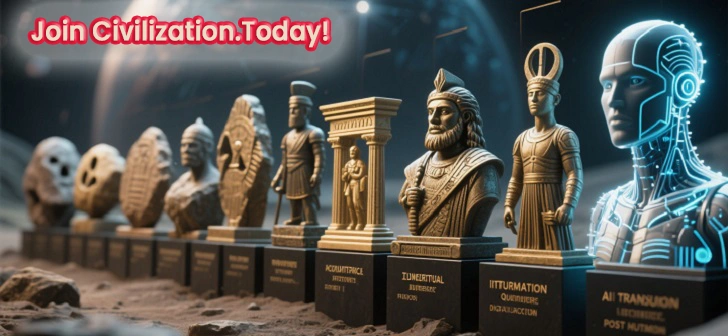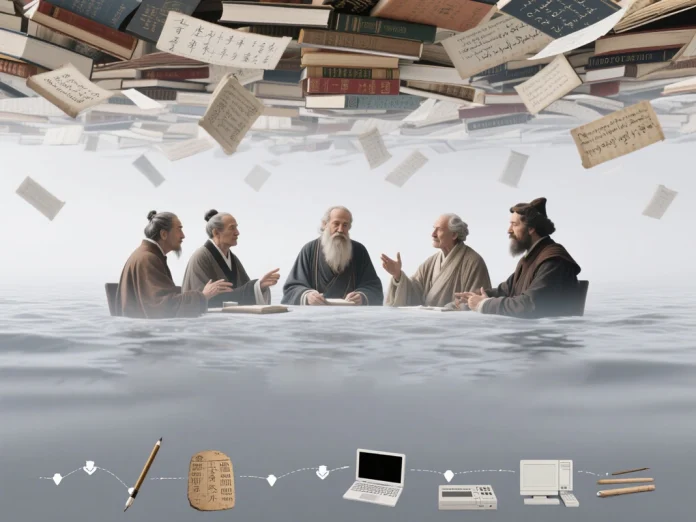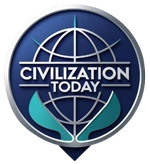Language is more than just a tool for communication. It is the foundation upon which civilizations were built, cultures flourished, and human progress accelerated. From the earliest cave paintings to the digital languages powering artificial intelligence today, the story of language evolution is the story of humanity itself. Without words, there would be no philosophy, no science, no religion, and no collective memory of our past.
In this article, we’ll explore how language shaped civilizations, the fascinating journey of its evolution, and why understanding this progression is crucial for our modern world.
The Dawn of Communication: From Gestures to Words
Long before written scripts or spoken sentences, humans relied on gestures, facial expressions, and sounds to convey meaning. Early hunter-gatherer societies depended on these primitive forms of communication to organize hunts, warn of dangers, and build trust within groups.
The leap from sounds to structured speech marks one of the most significant milestones in language evolution. Anthropologists estimate that spoken language began to form around 50,000–100,000 years ago. This innovation allowed knowledge to pass not only within generations but across them, enabling communities to accumulate wisdom, myths, and traditions.
The Birth of Writing: Civilization’s Memory
Spoken language is fleeting. Once words are spoken, they vanish unless remembered. This limitation changed with the invention of writing—arguably the greatest breakthrough in human history.
The Sumerians in Mesopotamia developed cuneiform around 3200 BCE, transforming clay tablets into the first permanent records. Soon after, Egyptian hieroglyphics and the Chinese logographic system emerged, turning ideas into symbols carved in stone or painted on papyrus.
Writing allowed societies to record laws, conduct trade, and preserve myths. Without it, there would be no Hammurabi’s Code, no Homeric epics, and no sacred texts like the Torah, Bible, or Quran. Writing turned ephemeral speech into civilization’s memory, ensuring knowledge could transcend both time and geography.
Language as Power: Control, Identity, and Empire
Language is not neutral—it is a form of power. Throughout history, empires used language as a tool to unite or dominate populations. Latin spread across Europe with the Roman Empire, while Arabic became the lingua franca of science, philosophy, and trade during the Islamic Golden Age.
Colonialism further reshaped the linguistic landscape. European powers imposed English, Spanish, French, and Portuguese on vast territories, often suppressing indigenous tongues. This not only centralized control but also transformed cultural identities. Even today, debates about preserving endangered languages reflect the ongoing tension between linguistic diversity and global dominance.
Language and Thought: Do Words Shape Reality?
The relationship between language and thought has fascinated philosophers and scientists alike. The Sapir-Whorf hypothesis suggests that the structure of a language influences how its speakers perceive the world. For example, some languages have multiple words for snow, time, or emotions, reflecting different cultural perspectives on reality.
While the theory remains debated, it highlights a crucial point: language does not merely describe reality—it actively shapes it. Civilizations didn’t just inherit words; they created entire worldviews through them.
From Oral Traditions to Digital Speech
The journey of language evolution did not stop with writing. Oral traditions continued to thrive, especially in cultures without scripts. Storytelling became the backbone of history, religion, and morality. Bards, griots, and shamans carried collective memory through spoken word, reinforcing identity and continuity.
In the modern age, the invention of the printing press in the 15th century sparked an information revolution. Books, pamphlets, and newspapers democratized knowledge, fueling the Renaissance, Reformation, and Scientific Revolution. Today, the digital age has accelerated this evolution further. Languages are now coded into binary, powering the algorithms that run our societies. Emojis, memes, and AI-generated text mark the latest stage of humanity’s linguistic journey.
Language as a Unifier—and Divider
Language has the power to unite entire nations under a shared identity, yet it can also divide communities. For example, the creation of standardized national languages in the 19th century helped foster nationalism in Europe. At the same time, linguistic differences have fueled conflict, from the Balkans to post-colonial Africa.
Preserving linguistic diversity has become a global concern. UNESCO estimates that nearly half of the world’s 7,000 languages could disappear by the end of the century. Each loss is not just a set of words, but an entire worldview, a unique lens through which humanity understands existence.
The Future of Language Evolution
Looking forward, the future of language evolution will likely be shaped by two forces: globalization and technology. English continues to dominate as the global lingua franca of science, business, and diplomacy. Yet digital translation tools and AI are breaking barriers, making multilingual communication more seamless than ever before.
At the same time, artificial intelligence is creating its own languages. Neural networks and bots often develop internal codes to process information more efficiently, raising profound questions: will machines eventually evolve languages beyond human comprehension? And if so, what role will humans play in that future conversation?
Conclusion: Words as the Architects of Civilization
From whispers in caves to code in machines, the story of language evolution is the story of human civilization. Words built empires, carried philosophies, and shaped identities. They are not just symbols but architects of reality.
As we stand at the crossroads of human and artificial intelligence, understanding the power of language is more urgent than ever. To preserve diversity, embrace innovation, and reflect on how words shape our world, we must remember one truth: civilizations rise and fall, but language endures as humanity’s greatest invention.



